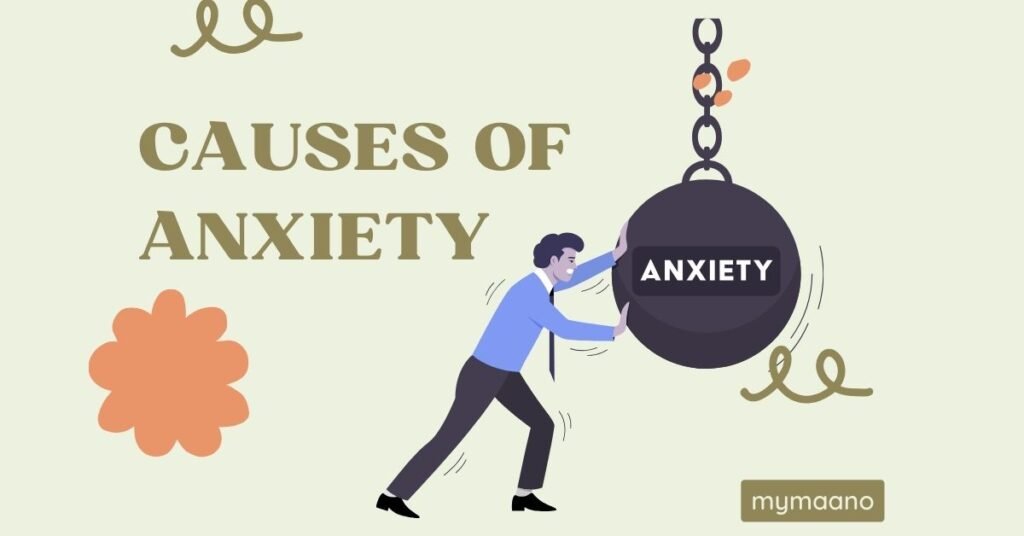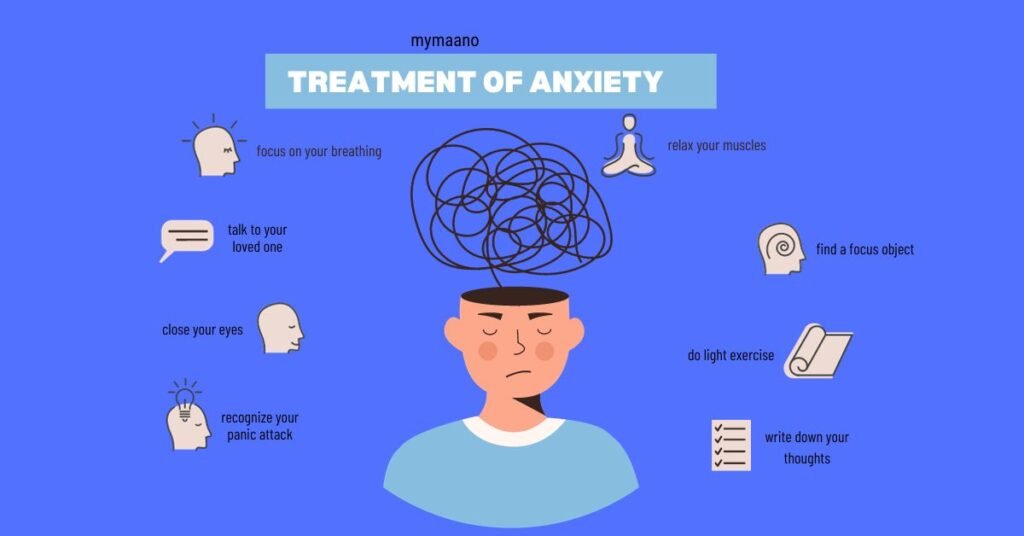Anxiety is a prevalent mental health issue that has a significant impact on millions of people all over the globe. It manifests in diverse ways, affecting one’s thinking, feelings, and life. This complete guide will dive into what are the causes of anxiety? their symptoms, diagnostics, treatments, and strategies.
Understanding Anxiety:
The natural response to anxiety is a reaction to threats and stress. It’s a survival mechanism that evolved to ensure that we are protected. But, when anxiety is persistent, excessive, and interferes with daily living, it is an anxiety-related disorder. Here’s what you should know about this disorder.
The symptoms of anxiety
Anxiety can manifest itself through various physical as well as emotional and behavioural signs. Common anxiety signs include:
Overwhelming Worry: Continuous and uncontrollable worry about many aspects of our lives, like work, health, or family.
Physical Symptoms: They can include an accelerated heart rate, breathing problems, trembling muscles tension, sweating, as well as digestive issues such as nausea or stomachaches.
Unrest: Feeling anxious, uneasy, restless, or unable to calm down.
Irritability: Getting easily upset or annoyed, typically concerning minor problems.
Distractions in Concentration: Need Help focusing on tasks, making decisions, and keeping information in mind.
Sleep disturbances: insomnia or having frequent nightmares.
Avoidance Behaviours: Avoiding situations or locations that can trigger anxiety.
Panic Attacks: Unexpected and intense bouts of terror and physical discomfort. Often associated with a feeling of imminent doom.
The causes of anxiety:

Anxiety disorders do not have a singular reason; instead, they have an array of causes:
Genetics Family history: An experience of an anxiety-related disorder could increase the chance of developing anxiety disorders.
Brain Chemistry: Inconsistencies of brain neurotransmitters (brain chemicals) such as dopamine and serotonin can cause anxiety.
Environmental factors Traumas, stressful life events, or dramatic changes could create or increase anxiety.
Personality: Certain personality characteristics can make someone more prone to being a victim.
Medical conditions: Chronic illness or medical conditions may cause anxiety-related symptoms.
The diagnosis of anxiety is:
Anxiety disorders are diagnosed through an extensive examination by the mental health professional. The typical assessment includes:
Clinician Interview: A comprehensive analysis of symptoms, their duration, and the way they affect your everyday life.
Physical Exam To eliminate any underlying medical issues.
Questions for Psychological Evaluation and standardized tests to assess the severity of anxiety.
Diagnostic Criteria: Refer to the Diagnostic and Statistical Manual of Mental Disorders (DSM-5), which gives guidelines for diagnosing anxiety disorders.
Talking to an expert in your medical field is essential if you suspect anxiety disorder. A precise diagnosis is the very first step toward successful treatment.
Treatment of anxiety:

The positive side lies in the fact that these disorders can be treated. Treatment methods can vary depending on the nature and extent of anxiety. Here are a few common treatments:
Cognitive-behavioural therapy (CBT) is a highly effective method of managing anxiety. It assists individuals in discovering and confronting negative thought patterns and developing better-coping methods.
Treatments:
Antidepressants, as well as anti-anxiety medication, can offer relief from the symptoms of anxiety that are severe. They must be administered to and monitored by a medical doctor.
Lifestyle Changes: Learning methods for managing stress, such as meditation, yoga, and deep breath exercises, can lower anxiety. Regular exercise, a healthy diet, and adequate sleep are vital. Support Groups Participating in group support or finding out social assistance can give you a feeling of belonging and acceptance.
Exposure Therapy involves gradually exposing oneself to situations that trigger anxiety to help people feel more at ease and less anxious with time. Relaxation and mindfulness techniques Meditation practices such as mindfulness and progressive muscular relaxation could aid in calming an anxious mind.
Biofeedback: This technique assists people in managing their physiological response to anxiety and stress by providing auditory and visual feedback.
Preventing Anxiety and Stress: Although anxiety disorders cannot always be avoided, certain strategies can lessen the risk or manage anxiety effectively.
Stress Management: Create healthy ways to cope with stress, like managing time, problem-solving, and relaxation strategies.
Mindful Living: Use mindfulness to remain in the present and to reduce worrying too much about the future.
Regular physical activity Exercise produces endorphins that are naturally uplifting and stress-reducing agents.
Balanced Diet: Eat an omnivorous diet rich in vegetables, fruits, whole grains, and lean protein. Limit caffeine and alcohol intake.
Good Sleep: Prioritize your sleep hygiene so that you are getting enough restorative and restful sleep.
Limit: A prolonged use of screens, particularly on social media, may create anxiety. Limit screen time.
REFERENCES
READ MORE AT MYMAANO
<script async src="https://pagead2.googlesyndication.com/pagead/js/adsbygoogle.js?client=ca-pub-9874873739501890"
crossorigin="anonymous"></script>
